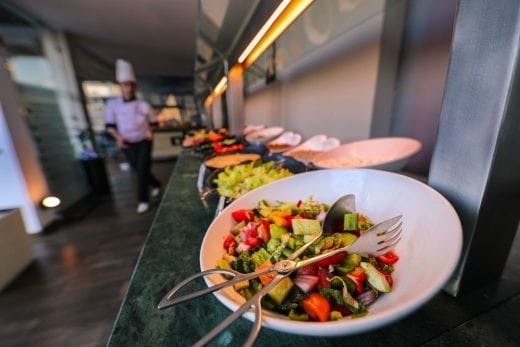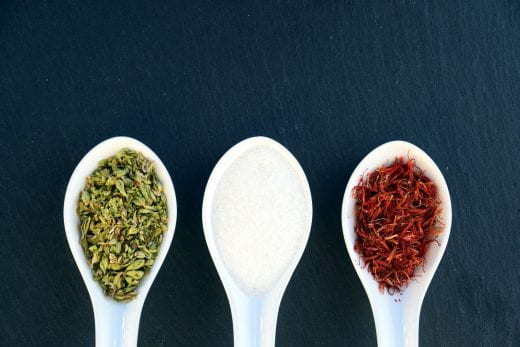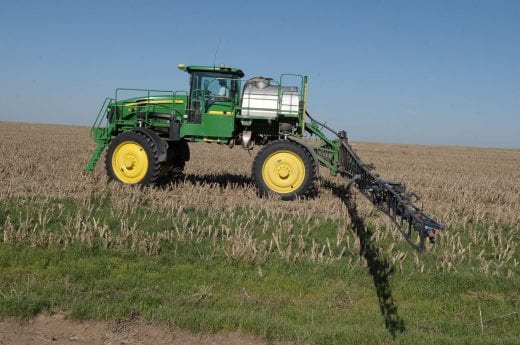This week in Better Kansas, we share a unique learning event focused on food and healthy eating, information on spices, growing blueberries, agricultural law and help with farming activities via Kansas AgrAbility to help make your life, businesses, communities and state better. This is a small glimpse of what K-State Research and Extension across the state has to offer. Share on social media and subscribe! – Mary Lou Peter mlpeter@ksu.edu
Better Living, Better Communities
 WE ALL EAT! and that’s the idea behind a free hands-on learning event planned in Sedgwick County Thursday, March 28 aimed at demonstrating ways to keep our tummies happy while eating foods that are good for us. WE ALL EAT! will happen 2:30-6:30 p.m. at the Sedgwick County Extension Education Center, 7001 W. 21st Street in Wichita. Cooking demonstrations and activities are planned for all ages so bring the kids to visit more than 50 organizations and booths. Some lucky attendees will win door prizes and other giveaways. Hmmmm… wonder if one of them is a personal chef who comes in and whips up a wonderful, healthy dinner for me every night. We’ll call him Andre´ 😊. Just kidding! WE ALL EAT is a collaboration of K-State Research and Extension, Dillons Food Stores and organizations that make up the Health & Wellness Coalition of Wichita. The event is free but also FEEL free to bring peanut butter and canned fruit in juice for donation to the Kansas Food Bank.
WE ALL EAT! and that’s the idea behind a free hands-on learning event planned in Sedgwick County Thursday, March 28 aimed at demonstrating ways to keep our tummies happy while eating foods that are good for us. WE ALL EAT! will happen 2:30-6:30 p.m. at the Sedgwick County Extension Education Center, 7001 W. 21st Street in Wichita. Cooking demonstrations and activities are planned for all ages so bring the kids to visit more than 50 organizations and booths. Some lucky attendees will win door prizes and other giveaways. Hmmmm… wonder if one of them is a personal chef who comes in and whips up a wonderful, healthy dinner for me every night. We’ll call him Andre´ 😊. Just kidding! WE ALL EAT is a collaboration of K-State Research and Extension, Dillons Food Stores and organizations that make up the Health & Wellness Coalition of Wichita. The event is free but also FEEL free to bring peanut butter and canned fruit in juice for donation to the Kansas Food Bank.
Don’t live near Sedgwick County? K-State Research and Extension locations around the state offer all kinds of nutrition information and education. Check with yours to see what’s coming up.
 WHILE WE’RE ON THE TOPIC OF FOOD, I’ll just say that it’s really helpful that some stores sell spices in much smaller quantities than they used to. Remember buying that huge jar of chopped chives or marjoram for just a teaspoon or two in one recipe….. ummm 10 years ago? And the rest is still taking up space in the spice cabinet? I guess it’s time to let it go! Okay, just a little humor to spice up this post. Check out Spice It Up, for good useful information on herbs and spices.
WHILE WE’RE ON THE TOPIC OF FOOD, I’ll just say that it’s really helpful that some stores sell spices in much smaller quantities than they used to. Remember buying that huge jar of chopped chives or marjoram for just a teaspoon or two in one recipe….. ummm 10 years ago? And the rest is still taking up space in the spice cabinet? I guess it’s time to let it go! Okay, just a little humor to spice up this post. Check out Spice It Up, for good useful information on herbs and spices.
 LET’S KEEP THE FOOD THEME GOING on a topic that’s controversial in some circles and enlightening and welcome in others. Alternative Protein Sources is a short new fact sheet that addresses the difference between meat as a protein source and plant-based protein sources, including nutritional considerations, plus how each is regulated by the government. My immediate work group includes omnivores, vegans and vegetarians. Planning our frequent potluck lunches is always an interesting exercise as we want to make sure everyone has plenty of the type of food they can or are willing to eat.
LET’S KEEP THE FOOD THEME GOING on a topic that’s controversial in some circles and enlightening and welcome in others. Alternative Protein Sources is a short new fact sheet that addresses the difference between meat as a protein source and plant-based protein sources, including nutritional considerations, plus how each is regulated by the government. My immediate work group includes omnivores, vegans and vegetarians. Planning our frequent potluck lunches is always an interesting exercise as we want to make sure everyone has plenty of the type of food they can or are willing to eat.
Better Farming, Ranching and Gardening
I NEVER REALLY HAD A FULL APPRECIATION FOR BLUEBERRIES until recent years, but now I’m hooked. Oh, yes … there were always those delectable blueberry muffins, but they’re also so good in yogurt, on cereal, in

pancakes and by themselves! They’re a good source of fiber, vitamin C and vitamin K, and represent minimal calories (85 calories in 1 cup). Plus, the antioxidants in blueberries offer inflammation-fighting and cell-protecting properties. And you can freeze them and they don’t turn mushy like some other fruits! One health website calls them a nutritional powerhouse. This super fruit is not native to Kansas and not always easy to grow, but it can be done, particularly on the eastern side of the state. The March 3, 2020 Horticulture Newsletter provides a video with tips for growing blueberries, plus two written segments, including one on growing them in containers. The newsletter edition also includes several articles on turfgrass. Take a look.
 MANY LAWS ARE ON THE BOOKS – SOME NEWER AND SOME FOR A LONG TIME – that affect agriculture, farmland ownership and more. Periodic updates by a Washburn University professor of agricultural law are available via Agriculture Today podcasts. Check out a couple of recent podcasts that include a ruling on the interest rate to be applied in a farm bankruptcy reorganization and the tax code provision called the Qualified Income Business Deduction, and questions he routinely receives from farmers and other landowners about it.
MANY LAWS ARE ON THE BOOKS – SOME NEWER AND SOME FOR A LONG TIME – that affect agriculture, farmland ownership and more. Periodic updates by a Washburn University professor of agricultural law are available via Agriculture Today podcasts. Check out a couple of recent podcasts that include a ruling on the interest rate to be applied in a farm bankruptcy reorganization and the tax code provision called the Qualified Income Business Deduction, and questions he routinely receives from farmers and other landowners about it.
 MAKING A CAREER IN AGRICULTURE CAN BE TOUGH UNDER ANY CIRCUMSTANCES, but even harder if a farmer or rancher has been injured, has a health condition or a disability. Kansas AgrAbility is available to directly assist the state’s farmers and ranchers as they navigate barriers to continue making their living helping grow our food supply. Kansas AgrAbility specialists combine their knowledge of agriculture with assistive device expertise to give farmers, ranchers and workers with health conditions or disabilities the specialized services they need to safely accommodate activities in everyday operations. Take a look at this fact page or call 1-800-KAN DO IT (1-800-526-3648). The program is part of a national network funded and administered by the U.S. Department of Agriculture National Institute of Food and Agriculture (USDA-NIFA).
MAKING A CAREER IN AGRICULTURE CAN BE TOUGH UNDER ANY CIRCUMSTANCES, but even harder if a farmer or rancher has been injured, has a health condition or a disability. Kansas AgrAbility is available to directly assist the state’s farmers and ranchers as they navigate barriers to continue making their living helping grow our food supply. Kansas AgrAbility specialists combine their knowledge of agriculture with assistive device expertise to give farmers, ranchers and workers with health conditions or disabilities the specialized services they need to safely accommodate activities in everyday operations. Take a look at this fact page or call 1-800-KAN DO IT (1-800-526-3648). The program is part of a national network funded and administered by the U.S. Department of Agriculture National Institute of Food and Agriculture (USDA-NIFA).
_
For more resources and activities, contact the K-State Research and Extension office in your area. Check out our other blogs and subscribe to our weekly emails here: https://www.ksre.k-state.edu/news/blogs/
